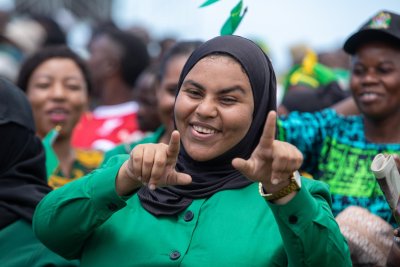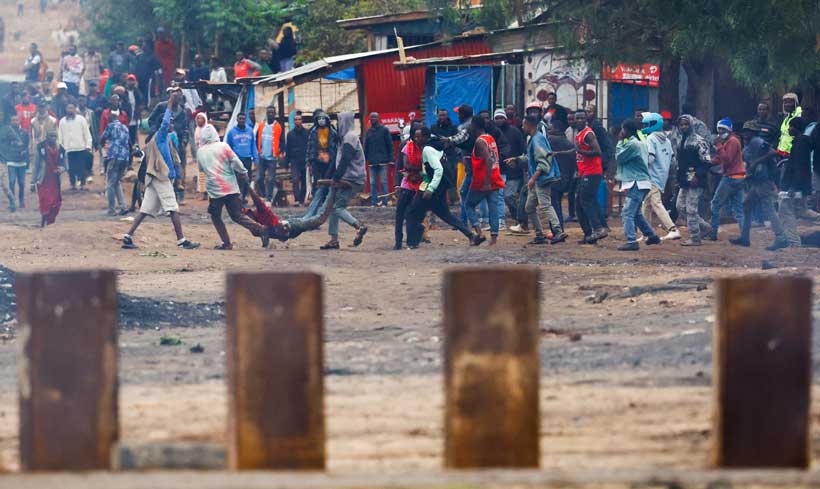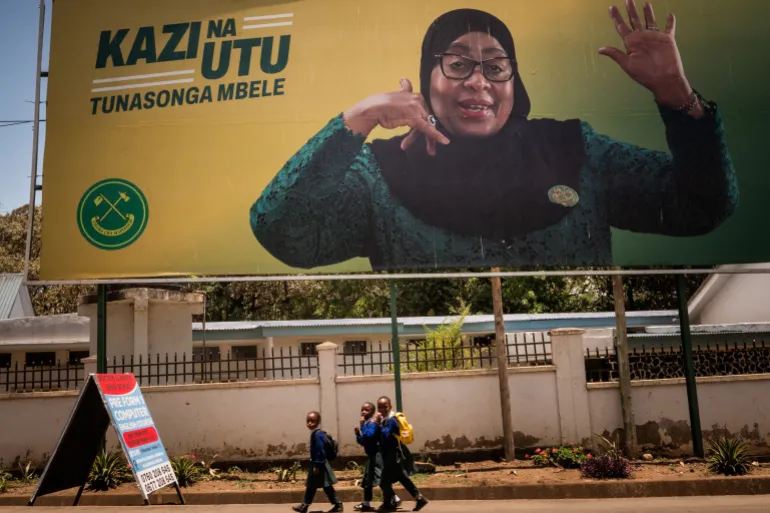Tanzania’s President Samia Suluhu Hassan keeps job amid election protests

Supporters of Tanzania’s President Samia Suluhu Hassan attend the launch of her presidential campaign in Dar es Salam on August 28. She was declared the winner Saturday in the election. File photo by Anthony Siami/EPA
Nov. 1 (UPI) — Tanzania’s President Samia Suluhu Hassan on Saturday was declared the winner of the presidential election amid unrest in the African nation over her candidacy and exclusion of her rivals.
Samia, 65, received 31.9 million votes, which was 97.66% of the total in Wednesday’s election among 17 parties, the electoral commission said.
Almost 87% of the country’s 37.6 million registered voters turned out, in sharp contrast with the 50% who voted in 2020.
Tanzania, which has a population of 71 million, is in eastern Africa and is bordered by the Indian Ocean on the east and south of the Equator.
“We thank the security forces for ensuring that the violence did not stop voting,” Samia, who came into office in 2021 as Tanzania’s first female president, said in a victory celebration in Dodoma. “These incidents were not patriotic at all.”
Although the politician from Zanzibar said the election was “free and democratic,” election observers and European Parliament members say the election was rife with irregularities, according to The New York Times.
Samia’s two main opposition contenders were barred from running.
Tundu Lissu, of the Party for Democracy and Progress, is being held on treason charges, which he denies, and Luhaga Mpina of the Alliance for Change and Transparency was excluded on legal technicalities.
During the unrest, Internet nationwide was been shut down and a curfew is in place.
On Friday, United Nations Secretary General Antonio Guterres called for “a thorough and impartial investigation into all allegations of excessive use of force” and Tanzanian authorities to uphold accountability and transparency in the post-election unrest.
There were no protests on Saturday, one day after demonstrators in several cities took to the streets, tearing down Samia’s posters and attacked police and polling stations.
Foreign Minister Mahmoud Kombo Thabit said the violence was a “few isolated pockets of incidents here and there.”
And electoral commission chief Jacobs Mwambegele said the election was run smoothly.
“I would like to thank all election stakeholders, especially political parties, candidates for various positions, your friends and members for conducting civilized campaigns and maintaining peace and tranquility throughout the campaign,” he said.
Tanzania’s semi-autonomous archipelago of Zanzibar elects its own government.
Hussein Mwinyi, who is the incumbent president, won with nearly 80% of the vote.
Sania was vice president and became president when John Magufuli died on March 17, 2021, of a heart condition at 61.
Her ruling party, Chama Cha Mapinduzi, and its predecessor, Tanu, have dominated the country’s politics and have never lost an election since independence from Britain.
The mainland territory of Tanganyika gained independence in 1961 and the islands of Zanzibar became independent as a constitutional monarchy two years later.
In 1964, they merged to become the United Republic of Tanzania.





